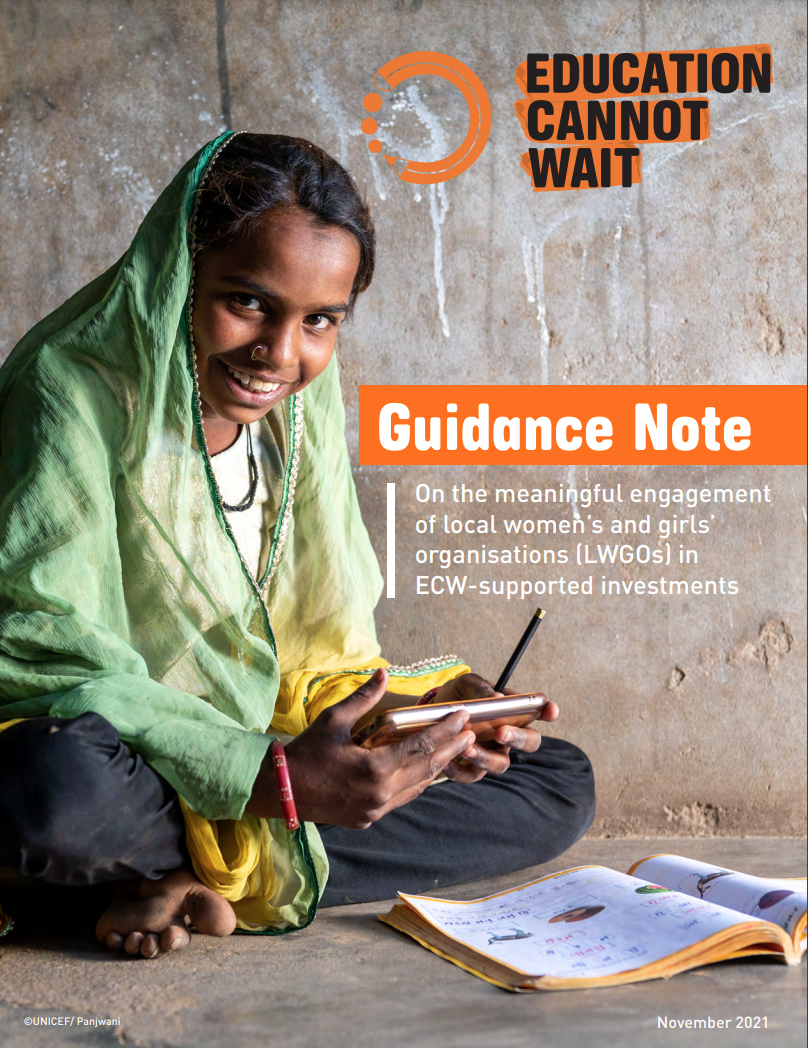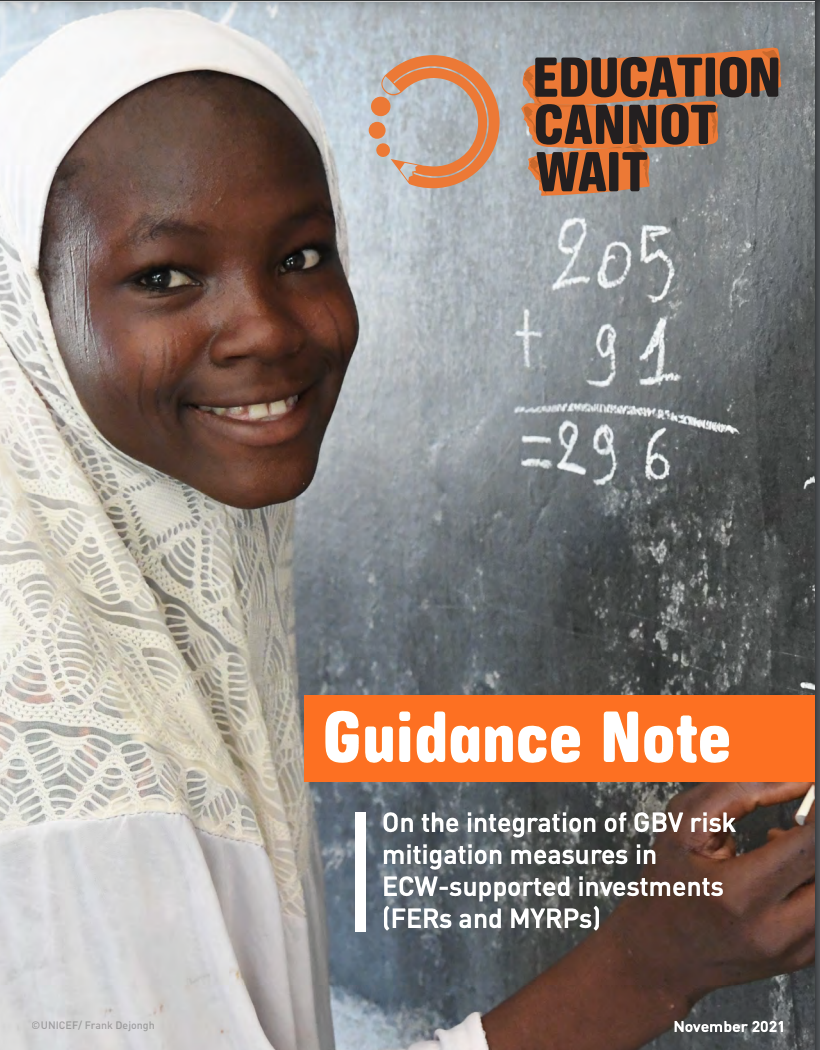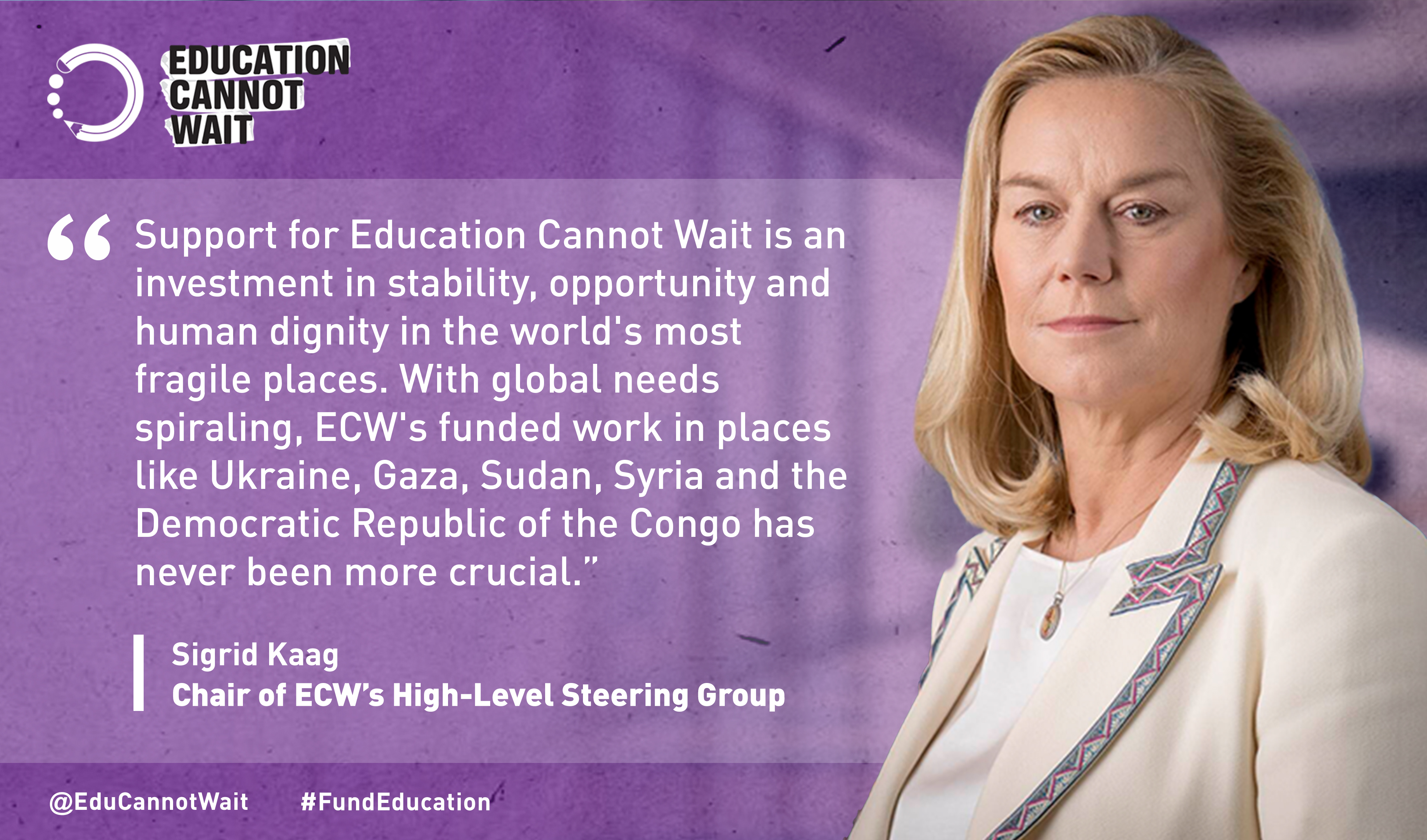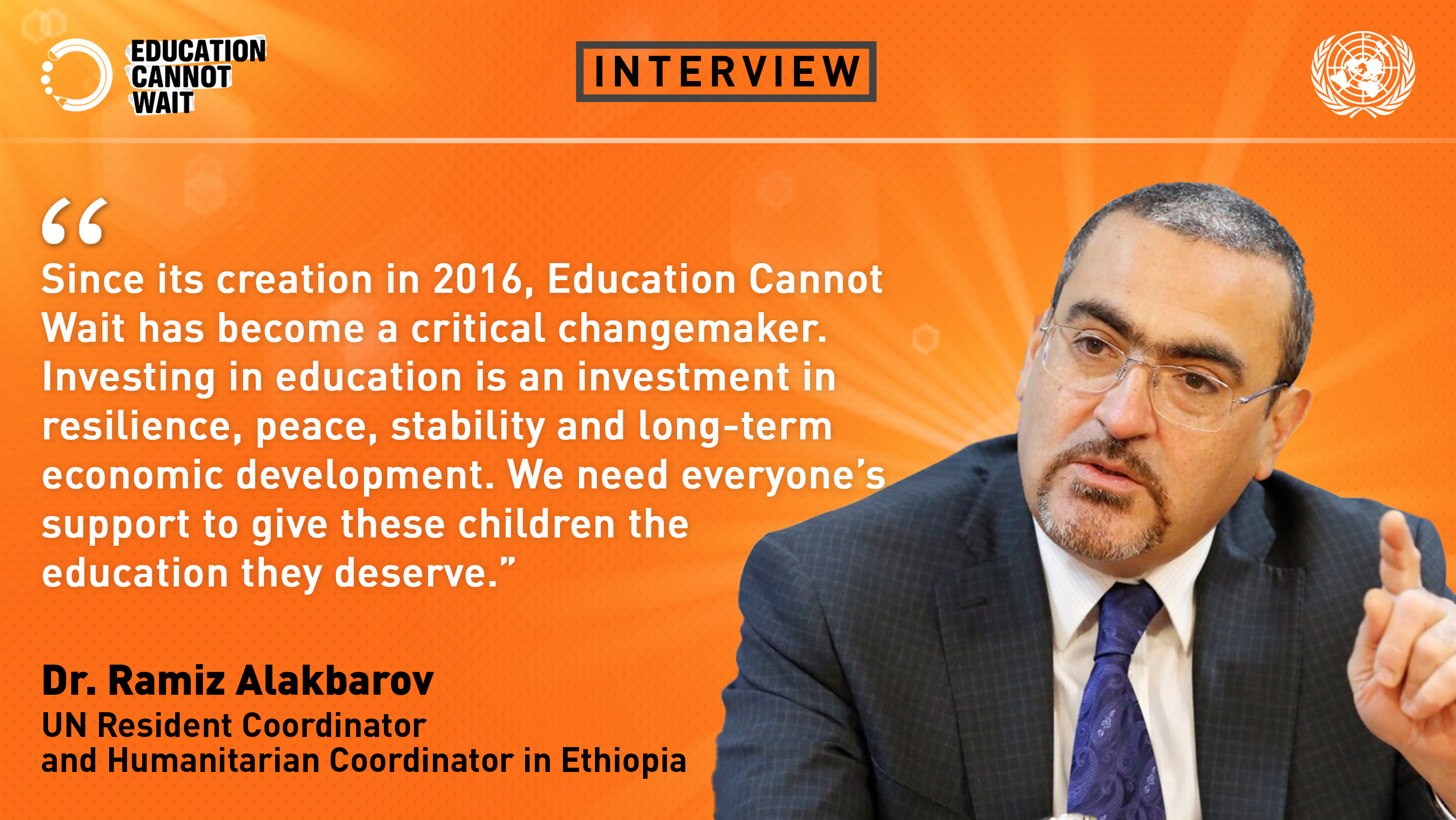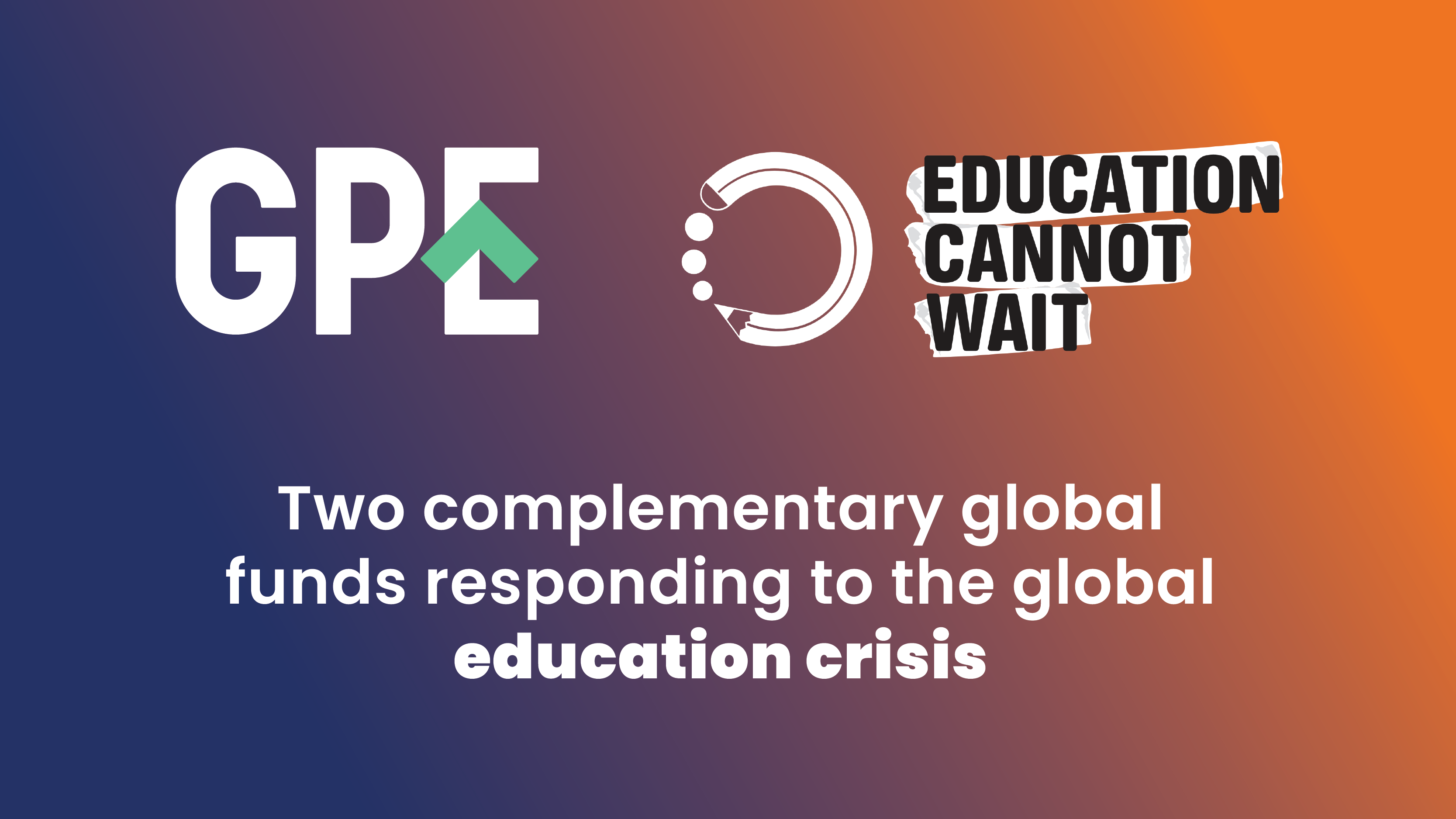ECW Launches New Resources to Better Address Gender-Based Violence Through Education in Emergencies Programmes
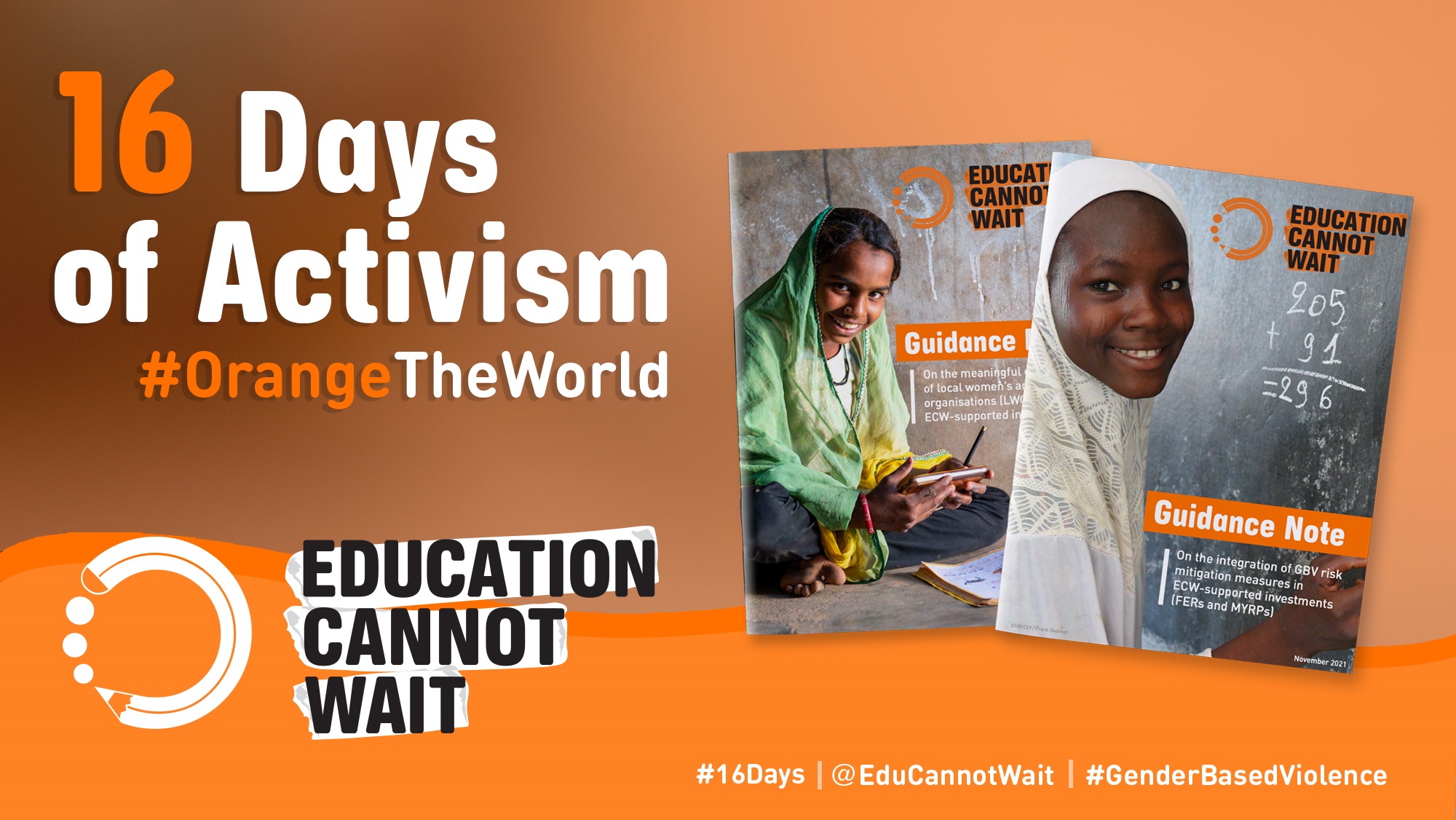
Every year the international community comes together to remind the world about the devastating impact of the most pervasive human rights violation across the world, gender-based violence.
It is estimated that, globally, one in three women and girls[1] will experience a form of GBV in their lifetime, be it sexual violence, physical violence, or child marriage. During conflicts and humanitarian crises, GBV risks are exacerbated— increasing the challenges already faced by affected communities.
Girls and women are disproportionately affected by the impact of emergencies on education. Although education is a fundamental right for all children and adolescents, families may prioritize boys’ education, choosing not to pay for girls’ school fees, uniforms and other supplies as a result of the economic impact of conflict, crisis, or forced displacement. This can heighten the risk of sexual exploitation when girls, particularly adolescent girls, are pressured to exchange sex for school fees.
At the same time, emergencies can create new risks for girls while travelling to and from schools and learning spaces or lack of safe and gender segregated WASH facilities. This, in turn, encourages families to keep their girls out of school and even to marry them off as children to reduce the risk of gender-based violence in and around schools.
As highlighted in the IASC GBV Guidelines (2015)[2], better-designed education programmes can help mitigate such risks—not only keeping girls and women safer and supporting them when they have been victimized by gender-based violence, but also providing them with the skills and knowledge to improve their own lives. . Although progress has been made since the GBV Guidelines were issued in 2015, the IASC Gender Accountability Framework report[3] (2019) clearly states that: ”it is essential that all humanitarian plans [including education] outline not only services for survivors, but also strategies for […] mitigation of all forms of GBV”.
Since its inception, ECW has put gender equality and the centrality of protection at the heart of all its investments through its whole-of-child approach, bringing together, gender responsive programming, disability inclusion, MHPSS, WASH, nutrition, and child protection. Moreover, ECW supports the localization agenda of the Grand Bargain[4] agreement and ECW is a supporter of the Safe School Declaration and key partner with the Global Coalition to Protect Education from Attack.
However, more must be done if we want to address GBV risks that are key barriers to girls’, particularly adolescent girls’ access, retention, and learning outcomes in emergencies and protactracted crises.
This is why, ECW decided this year to become the first fund to join the Call to Action on Protection from GBViE. Together with over 95 stakeholders ranging from UN agenies, to INGOs, States and donors, international organisations and local civil society organisations, we aim to contribute to change and foster accountability from the humanitarian system to address GBV from the earliest phases of a crisis. As the global fund for education in emergencies and protracted crises, ECW is well-positioned to make bold commitments to support GBV risk mitigation and support local women organisations so that women and girls voices are heard and that they play a key role in the design and implementation of safe, quality, and inclusive ECW-supported investments and beyond.
To support EiEPC partners deliver on these commitments, we are proud to be launching today, two new guidance notes on GBV risk mitigation measures and meaningful engagement of local women organisations. These short and practical guidance notes are based on global best practices and will be systematically integrated in the design and implementation of ECW-supported investments.
